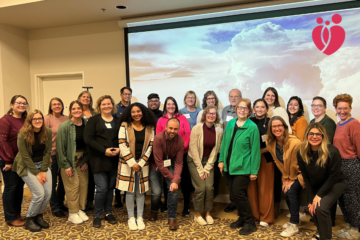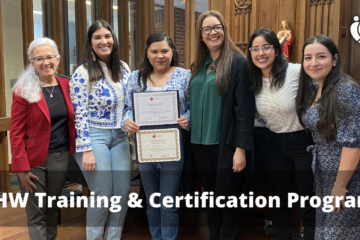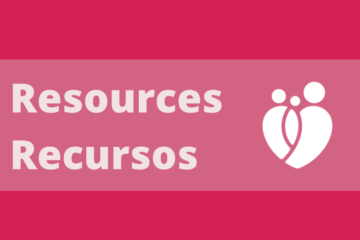**Familias adopted the term Latiné to describe our communities in an inclusive manner. We recognize that there is no single term that will encompass everyone.**

Community Stakeholder Interviews – Summary
Background
In April 2020, Familias en Acción (Familias) created its HIV/ STI Sexual Health Program. The program is part of Oregon Health Authority’s END HIV Oregon strategy. In Oregon, HIV cases have increased in urban, rural and frontier areas across the state (see the “Why HIV prevention” section below to see the stats).
The increase in new infections in our communities can be attributed, in part, to the complexity of this issue. Acknowledging this complexity points our efforts to a range of interconnected tactics, each equally critical to eliminating HIV in Oregon’s Latiné populations. For example, we must consider: the influence of socio economic factors; stalled prevention efforts and the need to increase accessibility to prevention, screening, and treatment; how behavior influences risk; stigma and its implications; and how community leadership can be developed.
We know we can’t end HIV alone. Community participation is essential in formulating a more effective strategy to combat HIV in Oregon and long-term community engagement is critical to sustaining the involvement of communities in the design and delivery of the strategy.
Why HIV Prevention?
Although testing is low, new HIV diagnoses are high among Latine people in Oregon, particularly males. Here are some current statistics:
-
- Although 12.7% of Oregon’s population is Latine, 24.6% of HIV cases diagnosed between 2018-2022 were Latiné – in other words, 1 in 4 people diagnosed with HIV in recent years were Latine.
-
- Rates of new HIV diagnosis among Latine people increased by more than 50% in 2022 compared to the previous 3 years.
-
- Increases of HIV diagnosis among Latine people increased in urban, rural, and frontier areas of Oregon – with the largest increases in rural and frontier areas.
-
- Rates of new HIV diagnosis are more than 10 times higher among Latine males than Latine females.
We can change these trends- prevention works!
PrEP, taken as a daily pill or periodic injection, is 99% effective in preventing HIV transmission. People living with HIV, who take HIV medication and reach undetectable viral loads have zero chance of transmitting HIV to their sex partners (this is called U=U or Undetectable = Untransmittable). The Oregon Health Plan and most health insurance plans cover these medicines to prevent and treat HIV; the Healthier Oregon Program provides coverage to many people living in Oregon who do not have documentation. Programs like CAREAssist and HIV case management help people in all Oregon communities start and stay on medications, so they can live longer, healthier lives.
Community-based messages and programs, delivered by people and agencies trusted by Latine community members, are urgently needed. We can end new HIV transmissions in Oregon!

Latine and HIV Learning Collaborative
Learning Collaborative Launches February 2024-
We are excited to launch our first quarter of learning and engagement activities on February 14th! For our first quarter, our theme and topics will focus on addressing HIV and STI stigma.
Have you ever thought about how HIV and STI stigma can impact both mental health and sexual health outcomes? Or how factors like race, ethnicity and culture can contribute to or influence stigma?
Stigma often comes from a lack of understanding or fear driven by misleading or inaccurate information. We will explore how stigma shows up in our everyday lives, the lives of our peers, our families and our friends. We will share stories and ideas for way’s to destigmatize, including using people first language where we center the person and not their illness, behavior, or disability, etc.
What do we hope to achieve?
- A greater awareness of unique issues and needs among Latiné communities to address HIV prevention, screening, and treatment in regions across Oregon.
- Deeper connections and relationships amongst each other to support potential, future collaboration.
What do we hope you learn?
- Define taboo and stigma
- Identify the negative impacts of stigma on mental, emotional, physical health.
- Provide examples of myths or misconceptions that contribute to stigma
- Translate foundational learning to lived experience
- Discuss how to address and decrease individual and cultural stigmas around taboo topics including sexual health, HIV, substance use, mental health, etc.
Details: Latine and HIV Collaborative Virtual Learning Series on HIV Stigma
Description: Join our panel of guest presenters to learn more about cultural Stigmas and its impacts on mental, emotional and physical health and wellbeing and hear from other community leaders across the state. This session will include an opportunity for audience participation!
Meet our guest speakers
Amador Perez (HE/HIM/HIS)
Harm Reduction Specialist
Eastern Oregon Center for Independent Living
Richard Rojas-Perez (HE/HIM/HIS)
Assistant Director of HIV Prevention and Harm Reduction
Eastern Oregon Center for Independent Living
**Language access: This session will be facilitated in English with Spanish interpretation available. Breakout sessions will be facilitated in both English and Spanish- all are welcome!**
Keep an eye out for our February newsletter and check back on our website where we will share more about the upcoming events in this 3-part series:
- March 2024: Community Stories: Stories of how stigma “shows up” in our lives as Latine Community Members
- April 2024: Community Conversation: How do we address stigma as Latine community members?
Familias en Acción is committed to continue to provide opportunities for shared learning around HIV prevention. We invite individuals and organizations in Oregon to participate and share ideas for doing this work collectively. Stay tuned to learn of upcoming learning events and opportunities to stay engaged: Sign up for our monthly newsletter!
Do you have questions or want to see how you can participate? Contact Ayla Rosen (ayla@familiasenaccion.org)
Upcoming events
**February 14** Latine and HIV Collaborative Virtual Learning Series Launch!
This is our 1st of 3 activities in our 3-part learning series on HIV stigma. Everyone is invited to participate and learn as we center Latine community voices and experiences.
**February 24** 2024 Western Forum for Migrant and Community Health
Ayla Rosen, MPH and Ingrid Lopez, CHW will be presenting a session on Latine and HIV/STI Community Education and Prevention at this year’s Western Forum in Seattle, WA.
**January- February** Me Cuido, Te Cuido Talleres Comunitarios
Registration is open for Familias’ sexual health education community classes, Me Cuido, Te Cuido. Classes are virtual, in Spanish and offered to community members across Oregon
**March 27** 2SLGBTQ+ Meaningful Care Conference
The 2024 conference will take place in Portland, Oregon with a virtual option available. Conference registration opens on January 20th
Do you have questions or want to see how you can participate?
Contact Ayla Rosen (ayla@familiasenaccion.org)
Resources
To support our learning journey, we are focused on eliminating gaps in service utilization by connecting people to resources for prevention, care, and treatment. Listed here are links to a curated excellent resources:
- End HIV Oregon https://www.endhivoregon.org/
- Check out our resources https://www.familiasenaccion.org/senderos-resources/
- Get free HIV/ STI testing https://gettested.cdc.gov/
- Order free condoms https://www.onecondoms.com/pages/oregon
- Person-first- destigmatizing-lanugage https://www.nih.gov/nih-style-guide/person-first-destigmatizing-language
- Mental Health Services https://raicesdebienestar.org/clinical-services


